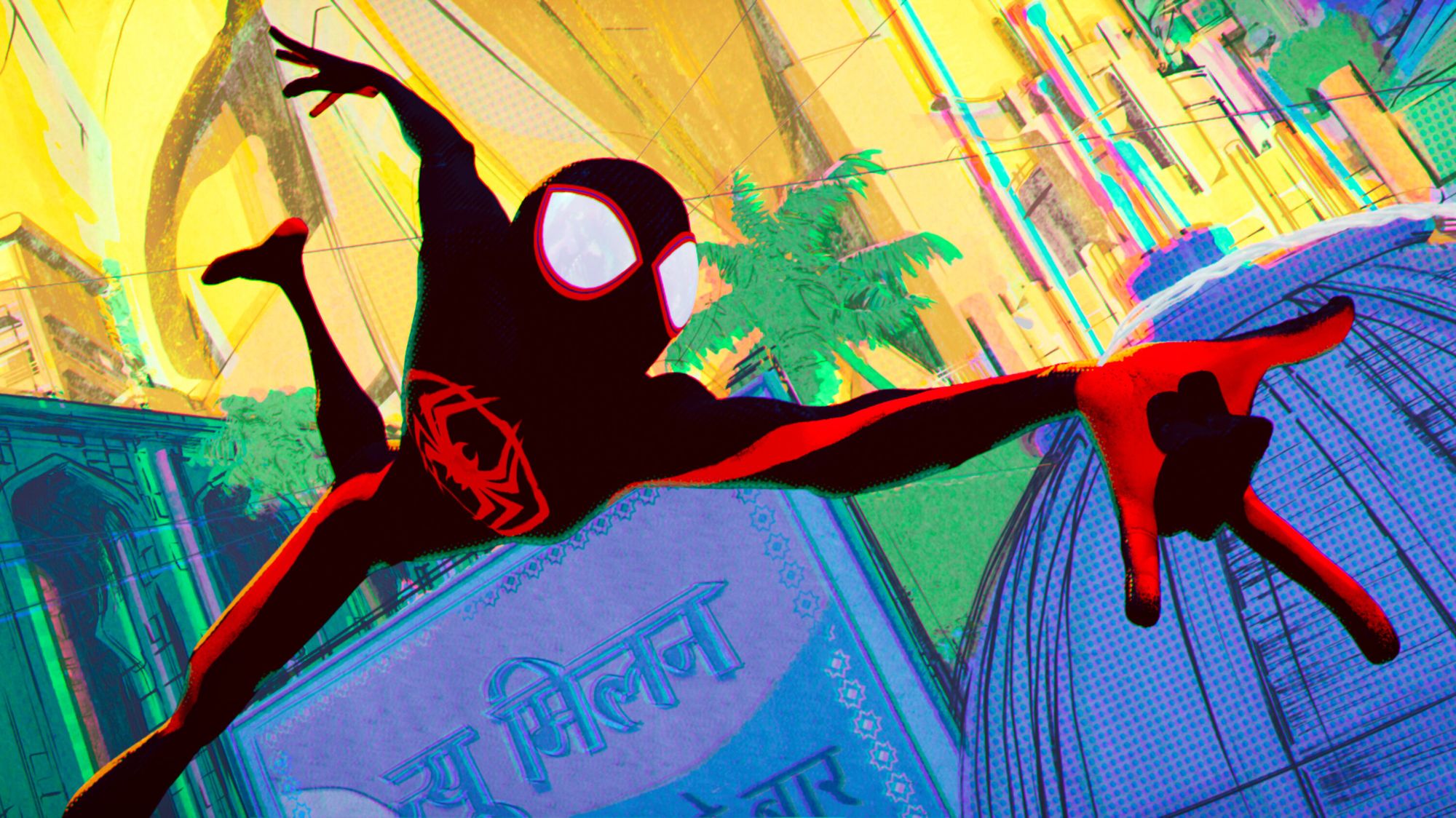Spider-Man: Across the Spider-Verse

Originally published on Letterboxd on 09/05/23
Went to see this because I was feeling mildly suicidal, needed a distraction of some sort and the place playing it was nearby, so in that regard- not bad! (though by the fifth time someone in the film uttered the word “canon” I wanted to blow my brains out).
Insofar as a collage of unfinished storyboards (which is what the animation mostly recalled), this is pretty perfunctory but mostly pleasant to look at? Not particularly enamoured with any of the techniques used here besides the pastel brushstrokes of bedroom walls in the first act, which is the sort of expressionism I wish these films would commit to more often instead of pure sensory overload. That failure to follow through on some of its more compelling formal conceits makes its way into the narrative, which largely repeats the first film’s facile concerns of “who can wear the mask?”, despite the fact that the Clone Saga arc and the mere existence of Ben Reilly in the 90s already answers that question.
In a considerably clumsier manner than The Matrix Reloaded, it posits the tangible existence of innumerable alternative futures as impetus for the individual retribution against predetermination. Unlike the Wachowski Sisters’ masterwork, however, Spider-Verse has considerably less interest in exploring notions of agency or even the fundamental ontological basis of the character the film posits thousands of variations of: responsibility. Fundamentally, there’s also just something deeply cynical about the whole endeavour of reducing what was- two decades ago- a character whose existence was enmeshed within wider struggles linked to class and urban prejudice against outsiders, which manifested in the form of Raimi’s sweeping three-part melodrama, reduced to a mere framework for a hollow metatextual framework of comic canon, where the product of individual tragedy and incumbent imposition of responsibility is merely a corporatised instrument used to sell more toys.
Anyways- I am absolutely not the target audience for this, and so I was bound to not get much out of it, but I would’ve been more enamoured with the supposed creative vigour of the animation on display if every scene wasn’t bookended by an embarrassing fan-service laden cycle of “hey, remember this? Remember this one guy from some cartoon that came out a decade and a half ago??? REMEMBER HIM?!” Every 5 minutes. To its credit, reimagining Spider-Man 2099 as a multidimensional fascist with enormous traps who whispers degrading remarks in people’s ears with the voice of Oscar Isaac is at least somewhat less creatively bereft than anything else going, thoughts it’s not enough for me to see this as a worthwhile endeavour, much less a take on the character that actually addresses what makes him an often compelling figure to read.
P.S: the creator of Spider-Man 2099, Peter David, is currently facing major health issues. His family has set up a GoFundMe to help fundraise payments for medical bills. It’s frankly disgusting that the creator of what is going to turn out to be one of the year’s most popular fictional characters hasn’t been compensated for a dime in either this or the previous Spider-Verse, but I suppose it’s not exactly surprising when you consider that the past decade-and-a-half of these films has been dedicated to divorcing them from any sign of authorial license in service of pure corporate product.
